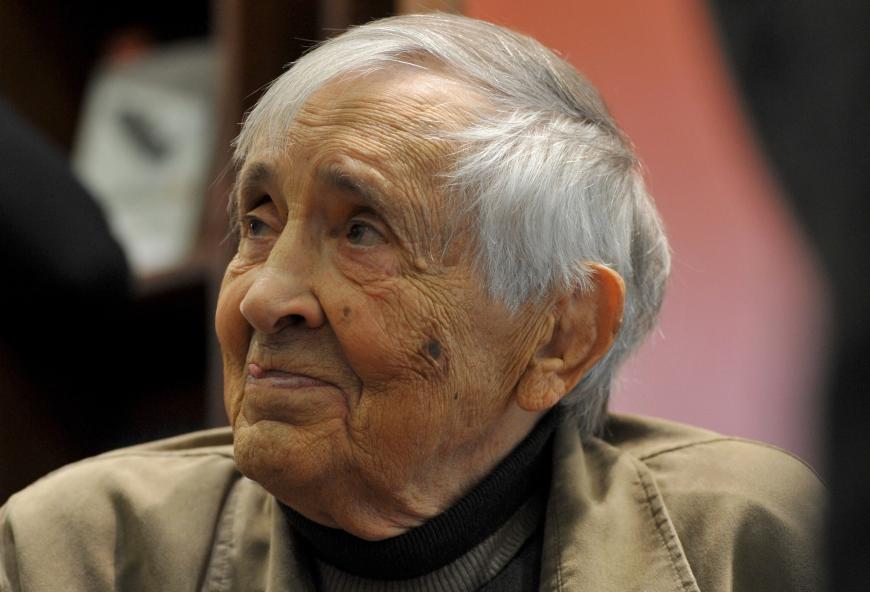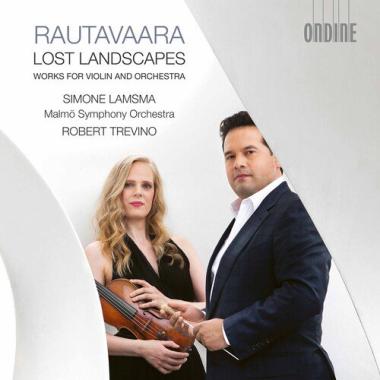
Einojuhani Rautavaara (1928–2016) — along with Esa-Pekka Salonen — may be the most imposing figures in Finnish music who managed to emerge out of the immense shadow of Jean Sibelius since that composer’s death in 1957. While Rautavaara didn’t have a major conducting career to raise his profile as Salonen does, he did have the sponsorship of the Ondine label, which has recorded most of his output. His catalog includes eight symphonies, no less than 14 concertos, operas, chamber music, choral music — the works.
Two of them — Cantus Arcticus, a floating concerto for birds (via prerecorded tape) and orchestra, and the splendidly ethereal Symphony No. 7 (“Angel of Light”) — are his best-known pieces, and for good reason. Although his style changed and morphed over the decades from a neo-classical base to serial experiments and back to tonality, these two works catch Rautavaara as kind of a Finnish Alan Hovhaness, given to massive, unison, thoroughly diatonic harmonies with a touch of mysticism. That mysticism may be the endearing factor that made these works appeal to a wider-than-usual audience for contemporary music.

In 2004, Rautavaara suffered an aortic dissection, spent six months in intensive care (then a record amount of time in Finland, we’re told), but survived for twelve more years of intensive productivity. This amounted to a whole late period of work, and four of his last pieces, all but one for violin and orchestra, are gathered on a new CD — on Ondine, naturally — with Dutch violinist Simone Lamsma and American conductor Robert Trevino leading the Malmö Symphony Orchestra of southern Sweden. They are pretty much in the style of Rautavaara’s most popular works, the reflective moods now more pronounced.
The Fantasia for violin and orchestra (2015), written for Anne Akiko Meyers and previously recorded by her, contains an undulating continuous melodic line for the soloist that winds its way through a serene, somewhat troubled, and finally soaring landscape for about 12 ½ minutes.
Deux Sérénades (2015), a commission for Hilary Hahn, was one of the last things that Rautavaara worked on. He managed to more or less complete the first serenade for strings but left only a partially orchestrated sketch of the second one. In any case, “Sérénade pour mon amour” continues the winding elegiac mood from the Fantasia, concluding sublimely. One of Rautavaara’s students, Kalevi Aho, completed the orchestration for “Sérénade pour la vie” in 2018 — and it picks up right where the first one left off in precisely the same style, though with added winds and horns and a suddenly skittering coda that ends up in the air, leaving the listener to wonder whether Rautavaara had more to say before he ran out of time.
Originally a Midori commission for violin and piano (this is the first recording of the string orchestra version), Lost Landscapes — also the title of the album — is a nostalgia trip back to places and actual addresses from Rautavaara’s studies in the 1950s. “Tanglewood,” as you would expect, is bucolic; “Ascona” (Switzerland) has a slightly acerbic edge that evokes his studies of 12-tone technique there without the score actually employing it. “Rainergasse 11, Vienna” brings back the nostalgic mood, while “West 23rd Street, NY” gently projects in triplets the thrumming electricity of the streets of Manhattan.
That leaves the short In the Beginning (2015) as the sole world premiere recording and the only purely orchestral piece on the CD. It was also Rautavaara’s last completed work, and it has a foreboding, dreamlike swirling opening that begins with a Romantic melody that sings, spirals upwards, and suddenly stops. Again, you wonder whether this is really the ending that the composer intended.
As it stands, In the Beginning and the other works here proclaim that Rautavaara was far from finished as a force in Finnish music when he passed away in July 2016 — and Lamsma and Trevino present this beautiful music in polished, sumptuously recorded performances.




